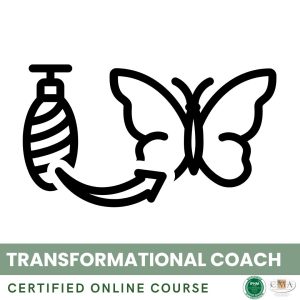Submodule 8.4 – Coach Supervision and Reflective Practice
Personal and professional development is a career-long pursuit for life coaches, and engaging in regular supervision and reflective practice is a cornerstone of maintaining coaching efficacy and ethical standards. Coach supervision provides an opportunity for professional growth and quality assurance, while reflective practice offers a valuable tool for self-examination and learning from one’s own coaching experiences.
Coach Supervision is an essential component of a life coach’s ongoing development. It provides a conducive space for discussing difficult cases, exploring new perspectives, and receiving objective feedback from a more experienced mentor or supervisor. A life coach might share how supervision allowed them to navigate ethical dilemmas with clients, ultimately enhancing the coaching process and safeguarding the client’s well-being.
The Reflective Practice involves the coach regularly examining their own coaching style, decisions, and interactions with clients. This introspection enables coaches to identify areas for improvement, celebrate successes, and consolidate learning. A storytelling example could detail how a coach’s commitment to journaling their reflections after sessions progressively advanced their coaching technique and rapport with clients.
Peer Group Supervision is another form of mutual learning, where coaches exchange experiences and support each other in their professional journeys. Similar to group therapy for therapists, peer group sessions can provide fresh insights and promote a shared ethic of excellence within the community. A vivid account might include a coach who discovered a new approach to a recurring problem through the diverse perspectives of their peers.
The Role of Case Studies in reflective practice is pivotal, as they allow coaches to deconstruct their work, assess outcomes, and adapt methodologies. By presenting cases to supervisors or peer groups, coaches can enhance their problem-solving skills and strategy development. A case study story might illustrate how reviewing a particularly challenging client led to breakthroughs not just for the client, but for the coach’s practice as well.
Balancing Self-Care within the framework of professional development cannot be overstated. Supervision and reflection allow for the identification of burnout signs, and developing strategies to address them. As coaches share their journeys through reflective practice, tales of overcoming personal burnout can serve as cautionary and inspirational narratives for their colleagues.
Commitment to Lifelong Learning is one of the hallmarks of an excellent life coach. Supervision and reflective practice represent structured avenues for continual learning and alignment with evolving industry standards. Testimonies of experienced coaches still seeking supervision can underscore the never-ending quest for mastery in coaching.
In essence, regular supervision and reflective practice contribute significantly to a coach’s capacity to provide high-quality and ethically sound coaching services, ensuring long-term professional effectiveness and personal growth.
Key Takeaways:
– Supervision is a critical practice for receiving guidance and maintaining ethical coaching standards.
– Reflective practice enables coaches to self-assess and learn from their coaching experiences.
– Peer group supervision offers collaborative opportunities for learning and development.
– Analyzing case studies deepens understanding and refines coaching approaches.
– Reflective practices support necessary self-care to prevent and manage burnout.
– A commitment to lifelong learning is essential for sustaining and enhancing coaching expertise.
👉 To download docx (Editable) file click here : Click here
👉 To download PDF file click here : Click here
👉 To download MP3 file click here : Click here






